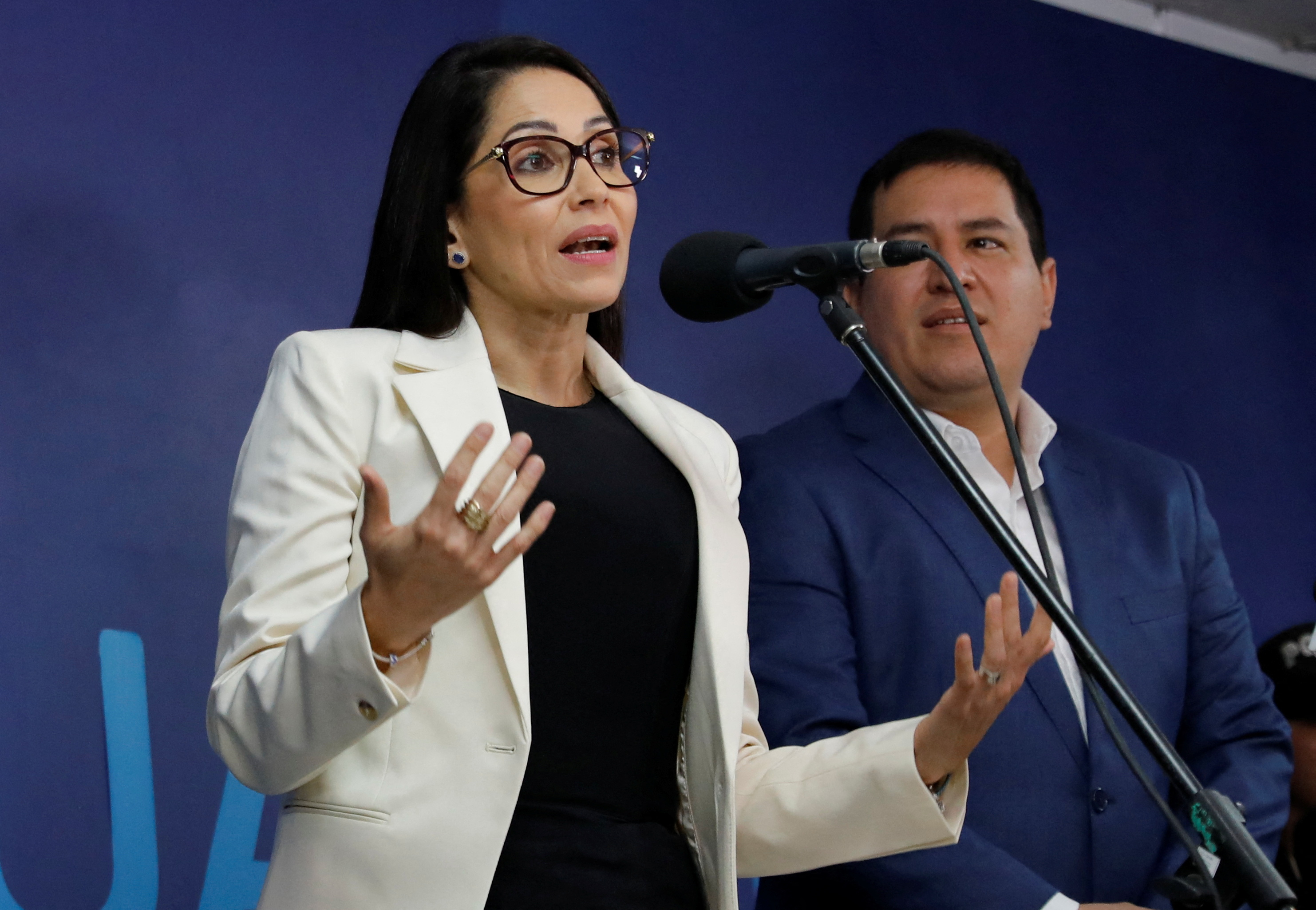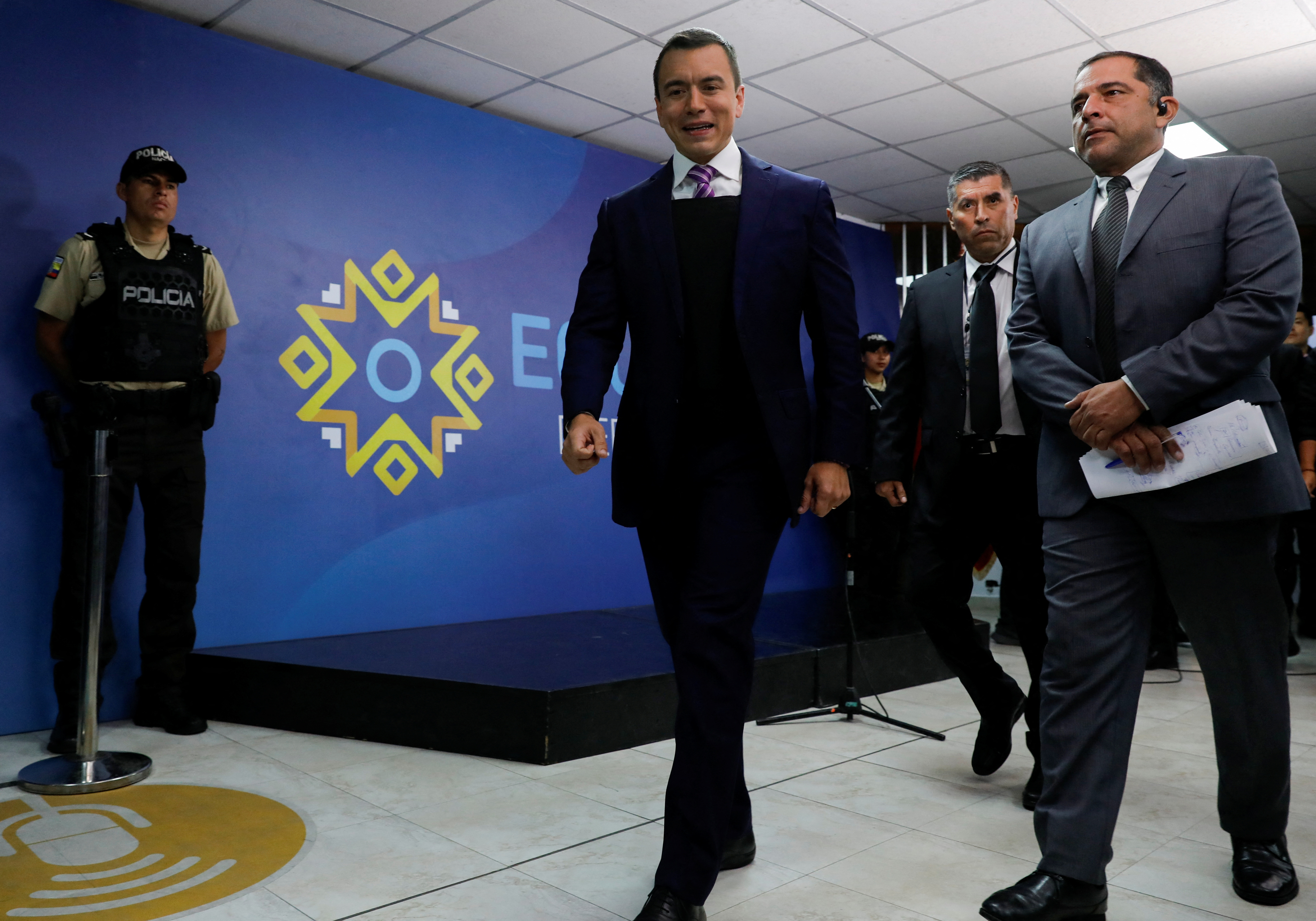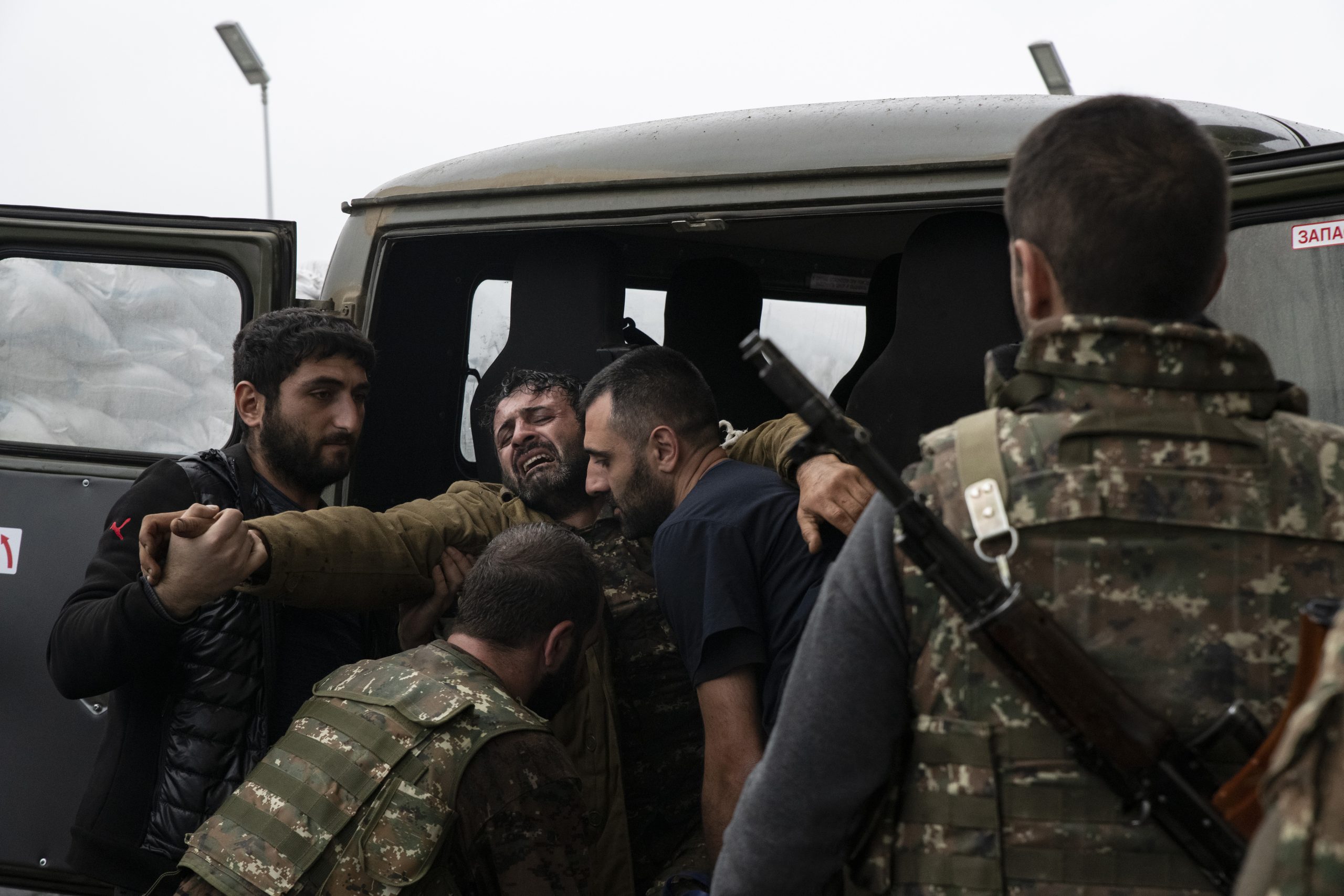With help from Paul McLeary and Connor O’Brien
Subscribe here | Email Alex | Email Matt
The details of the today’s indictment against Sen. BOB MENENDEZ read like a white-collar crime movie: Wads of cash stuffed in a Senate jacket! A new Mercedes-Benz convertible! Literal gold bars! And just as in a thriller, he’s got a nemesis or two likely celebrating his potential downfall.
After all — Menendez is expected to step down from his position as chair of the Senate Foreign Relations Committee, where he’s made enemies of some foreign governments.
“They’ll pop some champagne!” ALPER COŞKUN, a senior fellow in the Carnegie Endowment for International Peace’s Europe Program, predicted to NatSec Daily when asked about Turkey’s response.
Menendez has been a persistent headache for Turkish President RECEP TAYYIP ERDOĞAN, who has long sought to buy new F-16s and upgrade his existing fleet. Biden can’t sell the planes without buy-in from the top Republicans and Democrats on the Senate Foreign Relations and House Foreign Affairs committees, and Menendez hasn’t budged, citing concerns that Turkey could use them in a “belligerent way” against NATO allies.
It’s safe to say Erdoğan will be crossing his fingers for a friendlier replacement.
The New Jersey Democrat has denied the charges and called them a “smear campaign.” But according to Senate Caucus rules, if a lawmaker is under indictment for a felony, they can’t chair a committee. Lawmakers can resume their post if charges are dropped or reduced to less than a felony.
Menendez has also been a steadfast supporter of Armenia, something that has rankled Ankara and its close ally Azerbaijan. The SFRC chair was one of the most fervent supporters of U.S. recognition of the Armenian genocide and has devoted considerable legislative attention to the ethnically Armenian enclave of Nagorno-Karabakh. Just Thursday, Menendez led a bipartisan group of lawmakers in introducing a bill that would strip Azerbaijan of military assistance in light of Azerbaijan’s “ethnic cleansing” in the region.
Closer to home, Menendez has long used his perch to limit U.S. engagement with Cuba’s government and block efforts to lift the decadeslong embargo against the island. As one of the most powerful and hawkish Democrats in Congress, some observers believe that with Menendez sidelined, a new opportunity exists to return to U.S.-Cuba rapprochement.
But it’s unlikely that the Biden administration will rapidly scale up its entreaties with Cuba in Menendez’s absence. Embracing Havana would give credence to Republican claims in an election year that President JOE BIDEN and Democrats are “soft on socialism.” Cuba also has a stronger negotiating hand and its continued closeness with Russia, China and Iran make the prospect of mending fences less simple.
In June, CALLA WALSH, co-chair of the National Network on Cuba, a coalition of left-wing organizations working to end the embargo, and two other activists were arrested in Menendez’s office after demanding to speak with him about ending the embargo.
Asked for comment on the matter, Walsh had a simple answer: “lfg!” she wrote over text (we’ll let you Google what that’s short for).
In a statement, the National Network on Cuba told NatSec Daily that they hope Biden uses the leadership change to make his Cuba policy “pro-diplomacy, pro-engagement … as he promised to during his campaign.”
Other countries Menendez has been tough on, including Iran, China and Russia, probably aren’t likely to miss him too much either.
Read: Bob Menendez is no stranger to corruption scandals. His 50-year political career started with one by our own MATT FRIEDMAN
A message from Lockheed Martin:
Next Gen Necessities: Delivering what’s next to ensure those we serve stay ahead of ready.
What defines the Next Generation?
Robust survivability, uncompromised mission effectiveness and rapid adaptability–delivered quickly through digital engineering.
We’re hard at work to deliver what’s next for 21st Century Security. Learn more.
ATACMS INCOMING: Biden promised Ukrainian President VOLODYMYR ZELENSKYY that Washington will soon provide Kyiv with a small number of long-range missiles to help its war with Russia, two U.S. officials told our own JONATHAN LEMIRE, ALEXANDER WARD, PAUL McLEARY and LARA SELIGMAN.
Biden made the pledge to Zelenskyy during the Ukrainian leader’s visit to the White House on Thursday, fulfilling a long-held wish by Kyiv, according to the officials. It’s not clear exactly when the Army Tactical Missile Systems will be delivered to Ukraine, as the White House has yet to acknowledge the decision.
It’s a major win for Kyiv, which has long sought the missiles. ATACMS have a range of 45 to 190 miles, outranging anything the U.S. has delivered to date, and rivaling the handful of long-range missiles sent by France and the United Kingdom. Ukrainians have long argued that they are crucial to striking deep behind entrenched Russian positions along a 600-mile front line.
The news comes as Ukraine racked up a few other big wins recently, seemingly boosting morale among troops pushing back against Russian forces. On Thursday, Ukrainian forces breached the main Russian defensive line in the southeastern part of the country with armored vehicles for the first time, The Wall Street Journal’s JAMES MARSON reported.
That breakthrough shows that “Ukrainians are still able to surprise everybody,” VOLODYMYR OMELYAN, a captain in the Ukraine Armed Forces and the country’s former minister of infrastructure, told NatSec Daily today. “It takes us a lot of bloodshed but morale is high, offensive operations will go on.”
When asked if troops were looking forward to receiving Abrams M1 tanks this week, as Biden announced on Thursday, Omelyan said “absolutely,” adding a fire emoji.
Today, Zelenskyy announced that Ukraine and the U.S. have agreed to launch joint weapons production to start making air defense systems.
In Zelenskyy’s eyes, the trip to Washington this week paid off: “It was a very important visit to Washington, very important results,” he said in the video address.
ZELENSKYY AT THE ARCHIVES: The Ukrainian leader’s presentation to lawmakers in D.C. week was much different than his last trip in December, writes Paul, who attended Zelensnkyy’s speech at the National Archives on Thursday night.
During that earlier trip, the Ukrainian leader addressed a joint session of Congress just days before lawmakers were set to vote on a $45 billion aid package for his country, in which he made an impassioned plea that saw multiple standing ovations by lawmakers, along with a high-profile White House visit.
Nine months later, Congress is nowhere near voting on a new $24 billion aid package and is likely headed for a government shutdown in two weeks. Rejected by Speaker of the House KEVIN McCARTHY, Zelenskyy was unable to address Congress, so he settled for a smaller address in front of lawmakers like Sens. LINDSEY GRAHAM (R-S.C.) and NANCY PELOSI (D-Calif.), flanked by large murals of America’s founding fathers.
It was a more intimate and personal speech than the last, when he thundered about the costs of failing to beat back Russian forces attacking his country.
Zelenskyy instead focused on the human cost of the war. He and his wife, Olena, took turns speaking about the civilians killed and wounded in the fighting, bringing up to the stage two young Ukrainians wounded in the early days of the Russian invasion. The duo then called out about two dozen Americans and Ukrainian-Americans who have raised money and provided medical services for Ukrainians wounded in the fighting.
It was a human moment, and without the impassioned pleas for more Western aid that he has become known for. After about an hour, Zelenskyy and his team headed for the exits and a visit to Canada, while the future of U.S. aid remained stalled on Capitol Hill.
Read: Zelenskyy basks in Canada love-in as cracks emerge in alliance by our own KYLE DUGGAN
DON’T SAY DON: Never underestimate persistence. That’s the lesson we got from our own NAHAL TOOSI as she prodded people at the U.N. General Assembly about someone they clearly didn’t want to talk about: former President DONALD TRUMP.
She writes: “The European official looked terrified as I pointed outside the window at the gleaming black building a block away: Trump World Tower. ‘Wow. He’s right there! He’s literally looming over you!’ I said, genuinely astonished. Moments later, he moved my interview to a different room — one without the view of the Trump skyscraper.”
That scene captured the sentiments of people Nahal ran into this week at UNGA in New York: The possibility of a second Donald Trump presidency hangs over them, and they’re resigned to it the same way they are to encountering the Trump building as they walk across the street to the U.N. headquarters.
It’s a sharp analysis, and full of many more eye-opening tidbits. Stay you, Nahal.
Read: Who’s in charge here?: West Africa coups complicate U.N. diplomacy by our own MONA ZHANG
DRINKS WITH NATSEC DAILY: At the end of every long, hard week, we like to highlight how a prominent member of Washington’s national security scene prefers to unwind with a drink.
Today, we’re featuring BARRY PAVEL, vice president and director of RAND’s national security research division. When he’s not thinking big thoughts, Pavel winds down with “The Final Say,” a purple cocktail featuring Uncle Val’s gin, violet liqueur, luxardo and lime juice.
Many D.C. bars make this drink (and others) brilliantly, Pavel told us, but his favorite place to enjoy The Final Say “is at home with the people I love.”
Cheers, Barry!
IT’S FRIDAY. WELCOME TO THE WEEKEND: Thanks for tuning in to NatSec Daily. This space is reserved for the top U.S. and foreign officials, the lawmakers, the lobbyists, the experts and the people like you who care about how the natsec sausage gets made. Aim your tips and comments at [email protected] and [email protected], and follow us on X at @alexbward and @mattberg33.
While you’re at it, follow the rest of POLITICO’s national security team: @nahaltoosi, @PhelimKine, @laraseligman, @connorobrienNH, @paulmcleary, @leehudson, @magmill95, @johnnysaks130, @ErinBanco, @reporterjoe, @JGedeon1 and @ebazaileimil.
ATTACKING THE CARTELS: It might not be a good idea to strike Mexico with missiles or send troops over the southern border, as several GOP presidential candidates have floated, current and former U.S. military and government officials told Reuters.
Cartel members are heavily armed, meaning such an action could open the door to fighting on U.S. soil, the officials said. It may also close the door to collaborations with Mexico and create violent splinters within cartels, making them harder to contain.
The comments come as proposals to use bombing campaigns or military deployments to thwart drug cartels grow increasingly mainstream within the Republican Party. Florida Gov. RON DeSANTIS, former U.N. Ambassador NIKKI HALEY, tech entrepreneur VIVEK RAMASWAMY and Trump have all embraced military action against cartels as part of their policy platforms.
CHIPS FUNDING: The Commerce Department finalized rules today to stop semiconductor manufacturing subsidies from being used by China and other nations with national security concerns, allowing the Biden administration to begin awarding $39 billion in subsidies, Reuters’ DAVID SHEPARDSON reports.
NOT READY TO LEGISLATE AI: The Senate Intelligence Committee’s hearing earlier this week on artificial intelligence yielded at least one thing — ongoing debate over the idea of regulating emerging artificial intelligence technologies, our friends at Morning Cybersecurity (for Pros!) report.
Sen. MARCO RUBIO (R-Fla.), vice chair of the committee, told MC that he doesn’t think the Senate is “ready to pass legislation” around AI, given that the subject is still “rapidly evolving and there’s still not a clear understanding of what national guidelines could look like.”
The committee’s hearing focused on ways to address the national security implications of AI. It was the latest in a series of hearings on the technology that multiple congressional committees in the House and Senate have held in recent weeks, including a House Judiciary Committee hearing this week that featured dire warnings about how China is using AI to steal U.S. intellectual property.
UKRAINE CARVE-OUT: The Pentagon’s Ukraine operations will be safe from a potential government shutdown, and training on American tactics and equipment will continue uninterrupted, Lara reported Thursday night.
If lawmakers fail to reach a spending agreement when government funding lapses Sept. 30, DOD has decided to continue activities supporting Ukraine, such as training of Ukrainian soldiers on American tactics and equipment, as well as shipments of weapons to Kyiv. The news came just hours after Zelenskyy visited Austin at the Pentagon.
HOMELAND SECURITY DEMS WANT IN: The House Homeland Security Committee’s top Democrat, Rep. BENNIE THOMPSON (D-Miss.), is pressing for panel members to be included in talks on a compromise defense policy bill.
NDAA talks are primarily handled by Armed Services Committee leaders, but the House usually appoints members of outside committees to negotiate specific provisions that fall in their jurisdictions. Thompson made the case to Homeland Security Chair MARK GREEN (R-Tenn.) in a letter obtained by our own CONNOR O’BRIEN, arguing DHS issues will be decided in the final bill without the panel’s expertise.
“The committee’s exclusion from this year’s NDAA conference committee represents a bewildering departure from past practice,” Thompson wrote.
A Republican Homeland Security Committee aide, however, said Green sees no issue not being included, adding that the chair supports McCarthy’s drive for a narrowly focused NDAA and noting several other panels that were excluded.
DISNEY PRESSURE BACKFIRES: In an effort to mollify concerns from the House Select Committee investigating China, Disney laid off hundreds of workers in China, according to The Wall Street Journal’s JESSICA TOONKEL and ROBBIE WHELAN.
Ahead of a meeting between Disney CEO BOB IGER and the chair of the House China panel Rep. MIKE GALLAGHER (R-Wis.), the company laid off 300 workers who “specialized in technology that allows Disney’s streaming services to offer viewers personalized recommendations” to sidestep questions from the committee over data security, as the team had access to data from some U.S. consumers.
It resulted in a litany of glitches and errors that mounted over the course of days until the company restored some members of the fired team.
Extra, extra: As if today hasn’t been eventful enough, listen to the 911 audio about the F-35 pilot who ejected from his plane last weekend… and landed in someone’s backyard.
A message from Lockheed Martin:
Distributed Teaming: Crewed and uncrewed systems working together for the Next Generation.
Increased survivability, extended reach of networked sensors and informed decision making – that’s how collaborative Distributed Teams work to ensure those we serve stay ahead of ready. Learn more.
HOW INDIA GOT INVOLVED: Earlier this week, Canada accused India of being involved in the killing of a Sikh separatist leader but didn’t reveal how it knew. It turns out Ottawa is watching Indian diplomats closely.
Canadian surveillance of Indian diplomats, along with intelligence provided by an unspecified member of the “Five Eyes” intelligence-sharing bloc — which includes Canada, Britain, Australia, New Zealand and the U.S. — helped Ottawa make the accusation, a Canadian official told The Associated Press’ ROB GILLIES Thursday night.
The development comes as relations between the two countries continue to sour. Today, India stopped issuing new visas to Canadian citizens and called on Canada to reduce its diplomatic staff.
— MICHAEL SCHAFFER, POLITICO: He thinks Russia was behind his shooting. Local cops don’t. Is there a better way to investigate alleged foreign ops in America?
— LUIS MORENO OCAMPO, The Washington Post: Call what is happening in Nagorno-Karabakh by its proper name
— ALEXANDRA CHINCHILLA and SAM ROSENBERG, Foreign Affairs: Why America should send military advisers to Ukraine
— The Center for Strategic and International Studies, 8:45 AM: 2023 Republic of Korea-U.S. strategic forum
— The American Enterprise Institute for Public Policy Research, 10 A.M.: The state of U.S. counterterrorism efforts and diplomacy
— Quincy Institute, 12 p.m.: The Baltic States and Baltic security in a historical context
— The McCain Institute, 9:30 p.m.: Only one way forward: the vitality of a democratic Ukraine
Thanks to our editor, Heidi Vogt, who we wish would step down from her post.
We also thank our producer, Andy Goodwin, who would make a great replacement.
CORRECTION: A previous version of this newsletter misspelled Canada’s capital.








